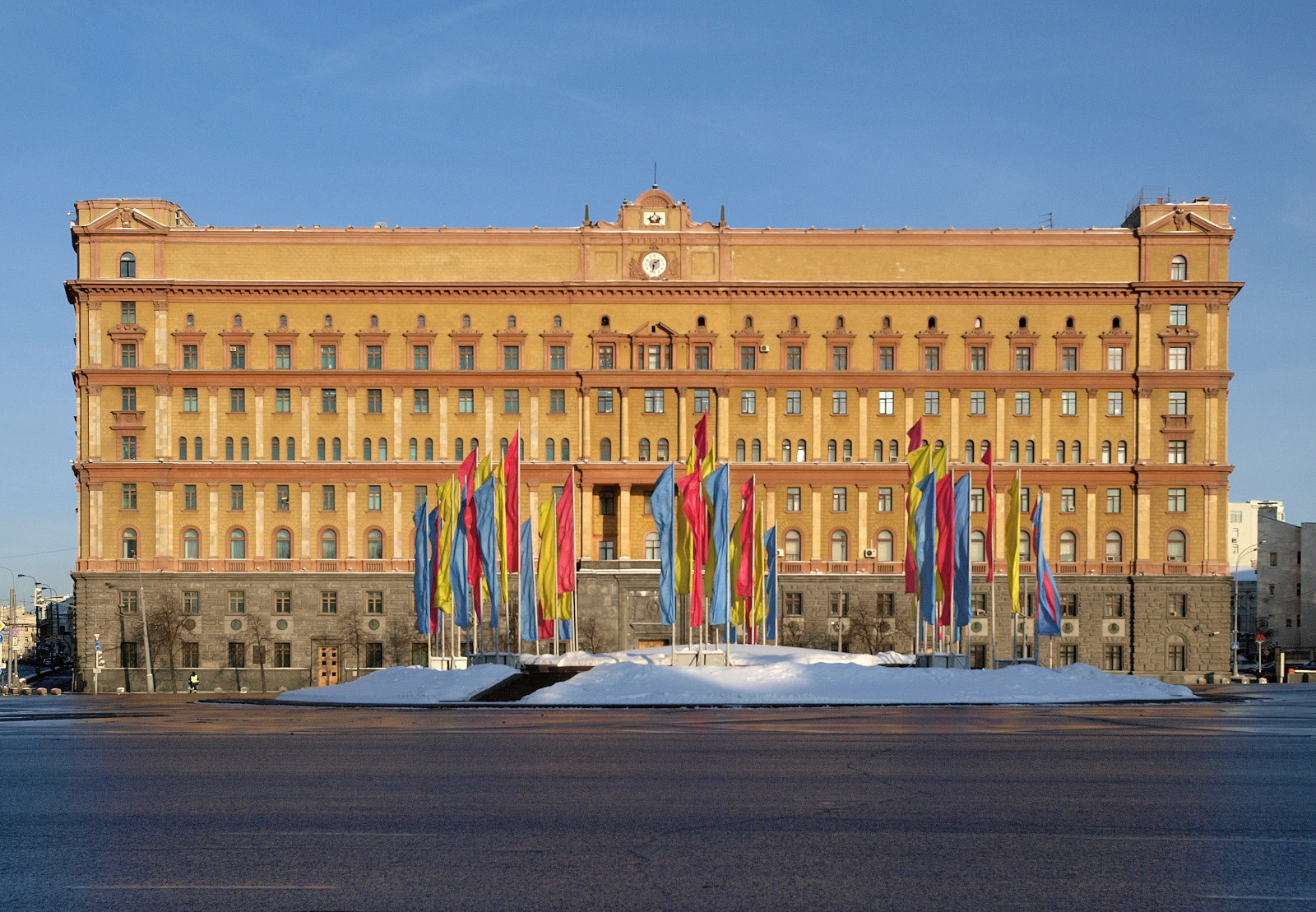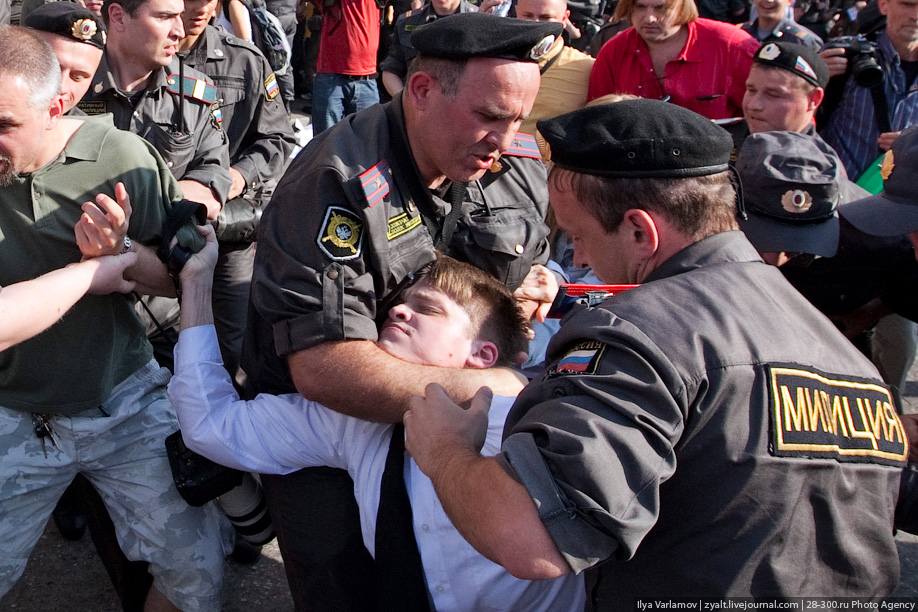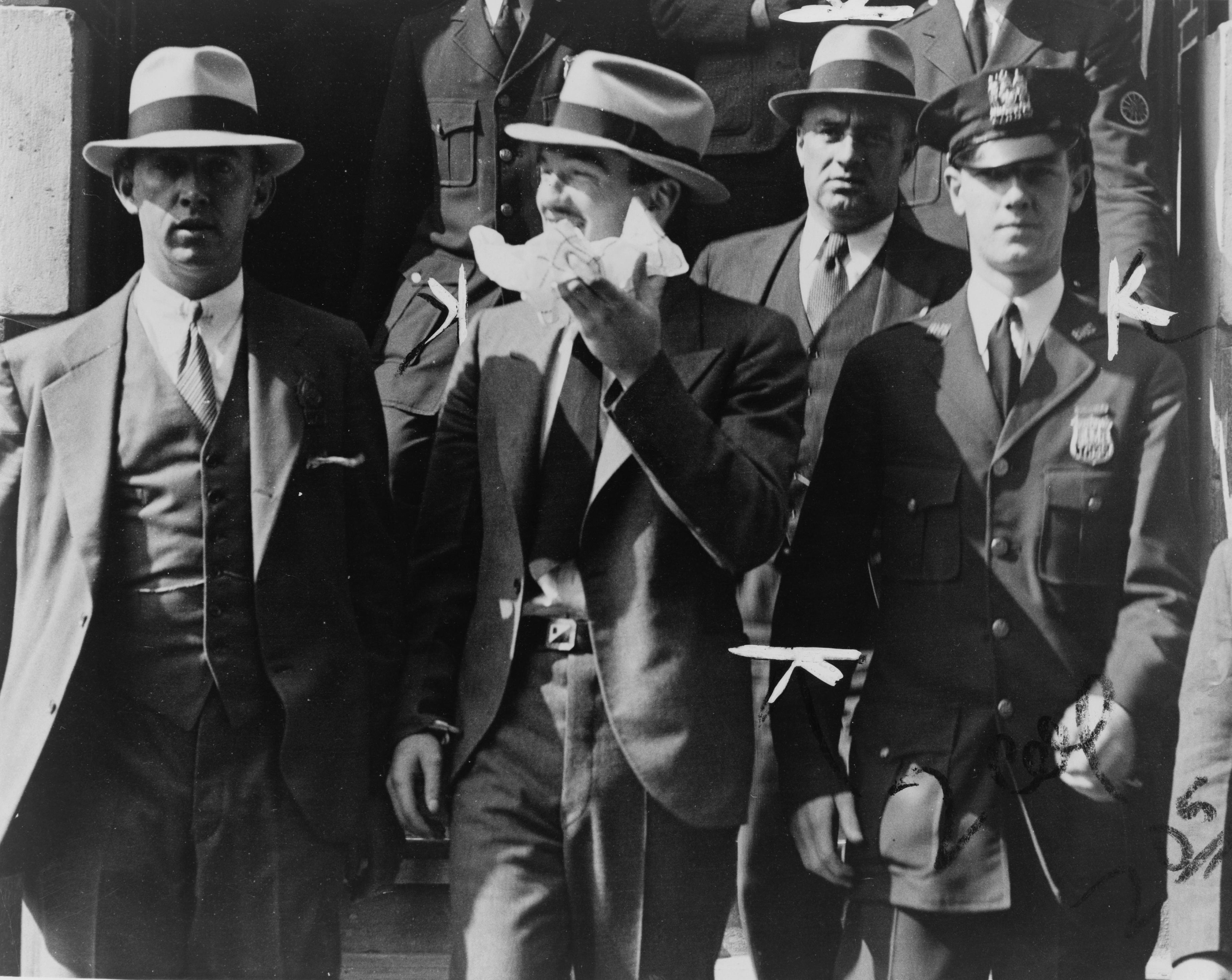|
1995 Azerbaijani Coup D'état Attempt
The 1995 Azerbaijani coup d'état attempt, also known as the Turkish coup in Baku, was a coup d'état attempt by members of the Azerbaijani military, led by Colonel Rovshan Javadov at the head of a detachment of Special Purpose Police Unit (OPON). The group aimed to take control of the country from president Heydar Aliyev and reinstall former president Abulfaz Elchibey. The coup was foiled when the Turkish President Süleyman Demirel became aware of elements in Turkey supporting the plot, and called Aliyev to warn him. On 17 March 1995, units of the Azerbaijani Armed Forces surrounded the insurgents' camp and assaulted it, killing Colonel Javadov. Reports in Turkey following the 1996 Susurluk scandal elaborated on support for the coup from elements in Turkey. Events On 12 December 1994 a team of people, including Korkut Eken (Turkish National Intelligence Organization, MİT), İbrahim Şahin and Ayhan Çarkın (Turkish Police Special Operations Department) and Abdullah Çatlı ... [...More Info...] [...Related Items...] OR: [Wikipedia] [Google] [Baidu] |
Post-Soviet Conflicts
This article lists the post-Soviet conflicts; the violent political and ethnic conflicts in the countries of the Post-Soviet states, former Soviet Union following its Dissolution of the Soviet Union, dissolution in 1991. Some of these conflicts such as the 1993 Russian constitutional crisis or the 2013 Euromaidan protests in Ukraine were due to political crises in the successor states. Others involved separatist movements attempting to break away from one of the successor states. Frozen conflicts Some post-Soviet conflicts ended in a stalemate or without a peace treaty, and are referred to as frozen conflicts. This means that a number of Post-Soviet states, former-Soviet states are left sovereignty over the entirety of their territory De jure, in name only. De facto, In reality, they do not exercise full control over areas still under the control of rebel factions. Rebel groups are essentially left independent over large chunks of the territories they claim. In many instances, ... [...More Info...] [...Related Items...] OR: [Wikipedia] [Google] [Baidu] |
Korkut Eken
Korkut Eken (born 1945) is a former Turkish military officer and National Intelligence Organization (MİT) agent. He became involved in the Susurluk scandal in Turkey after some of his subordinates, notably Ayhan Çarkın, were convicted of extrajudicial killings. In 2001, among the first convictions arising from the scandal, Eken was found guilty of establishing and managing a criminal gang with the aim of "creating panic in society" and sentenced to six years in prison. Career Eken joined the Turkish Military Academy in 1963. He took part in the Cyprus landings on 20 July 1974. He joined the Special Warfare Department ( tr, Özel Harp Dairesi) in 1978. He received training in special warfare in Germany, the United Kingdom, and the United States. He gained fame in 1981 after he led a raid to rescue a plane seized by Islamic militants in Diyarbakır. Eken was once involved in an ice producing business in Antalya with an MİT colleague called Mehmet Eymür Mehmet Eymür (born 19 ... [...More Info...] [...Related Items...] OR: [Wikipedia] [Google] [Baidu] |
Veli Küçük
Veli Küçük (born 9 May 1944, Türkmen, Gölpazarı, Bilecik, TurkeyToday's Zaman, 16 June 2009Ultranationalist Ergenekon suspect is of Armenian origin, magazine reveals/ref>) is a retired Turkish brigadier-general. He is thought to be the founder of the JİTEM intelligence arm of the Turkish Gendarmerie, and is accused by the Turkish government of being the head of the Ergenekon organization, based on testimony by Tuncay Güney. He was arrested in January 2008, and on 5 August 2013, sentenced to two consecutive life sentences. Career Küçük graduated from the Turkish Military Academy in 1965. He was promoted to Brigadier-General in 1996, and retired on 30 August 2000. Küçük is thought to be the founder of the JİTEM intelligence arm of the Turkish Gendarmerie. Susurluk Küçük is said to be the last person to have spoken to Abdullah Çatlı before his death in the 1996 Susurluk car crash, and to have communicated extensively with Çatlı, Drej Ali and Sami Hoştan. ... [...More Info...] [...Related Items...] OR: [Wikipedia] [Google] [Baidu] |
Necabettin Ergenekon
Colonel Necabettin Ergenekon (1926 – 23 October 2020) was a Turkish Army officer. He retired in 1982, having been commander of the Turkish Gendarmerie in Adıyaman Province after the 1980 Turkish coup d'état. Born in Erzurum in 1926 as Necabettin Baltacı, he changed his name "some time in the '60s" to avoid confusion with another person by the same name. At one time, Ergenekon was the commanding officer of Veli Küçük. Ergenekon was suspected by later-assassinated state prosecutor Cevat Yurdakul as being behind a string of mysterious deaths in the 70s, but no legal action was ever taken. With the development of public discussion about the Ergenekon organization in the 2000s, Ergenekon's name has sometimes been raised as a possible participant, possibly even responsible for its naming. Ergenekon rejects these allegations and says his name (chosen for the Ergenekon myth) has been besmirched by traitors. Key Ergenekon trials witness Tuncay Güney claims Ergenekon introduced ... [...More Info...] [...Related Items...] OR: [Wikipedia] [Google] [Baidu] |
Yeni Şafak
''Yeni Şafak'' ("New Dawn") is a conservative, Islamist Turkish daily newspaper. The newspaper is known for its hardline support of President Recep Tayyip Erdoğan and the AK Party and has a very close relationship with the Turkish government. Together with other media organizations in Turkey, it has been accused of using hate speech to target minorities and opposition groups. History ''Yeni Şafak'' founding editor was Mehmet Ocaktan. In the beginning, ''Yeni Şafak'' was known for harboring both liberal and Islamist columnists. ''Yeni Şafak'' was acquired by Albayrak Holding in 1997, which had close ties with then mayor of Istanbul, Recep Tayyip Erdoğan. After İbrahim Karagül became the editor-in-chief of ''Yeni Şafak'', the newspaper became a hardline supporter of then prime minister Recep Tayyip Erdoğan. More Islamist columnists were employed, while liberals like Kürşat Bumin were fired from the newspaper because of their critical views of Recep Tayyip Erdoğan and ... [...More Info...] [...Related Items...] OR: [Wikipedia] [Google] [Baidu] |
Federal Security Service
The Federal Security Service of the Russian Federation (FSB) RF; rus, Федеральная служба безопасности Российской Федерации (ФСБ России), Federal'naya sluzhba bezopasnosti Rossiyskoy Federatsii, fʲɪdʲɪˈralʲnəjə ˈsluʐbə bʲɪzɐˈpasnəstʲɪ rɐˈsʲijskəj fʲɪdʲɪˈratsɨɪ) is the principal security agency of Russia and the main successor agency to the Soviet Union's KGB; its immediate predecessor was the Federal Counterintelligence Service (FSK) which was reorganized into the FSB in 1995. The three major structural successor components of the former KGB that remain administratively independent of the FSB are the Foreign Intelligence Service (SVR), the Federal Protective Service (FSO), and the Main Directorate of Special Programs of the President of the Russian Federation (GUSP). The primary responsibilities are within the country and include counter-intelligence, internal and border security, counter-terr ... [...More Info...] [...Related Items...] OR: [Wikipedia] [Google] [Baidu] |
Radikal
''Radikal'' () was a daily liberal Turkish language newspaper, published in Istanbul. From 1996 it was published by Aydın Doğan's Doğan Media Group. Although Radikal did not endorse a particular political alignment, it was generally considered by the public as a social liberal newspaper. Despite only having a circulation of around 25,000 (July 2013), it was considered one of the most influential Turkish newspapers. It was praised for its culture, arts, and interview sections, as well as columnists such as M. Serdar Kuzuloğlu, Hakkı Devrim, Yıldırım Türker, Türker Alkan, Tarhan Erdem, Cengiz Çandar, and Altan Öymen. Hasan Celal Güzel, former minister of national education, Murat Yetkin, and Mustafa Akyol, son of Taha Akyol, also write for Radikal. On 22 March 2016, it was announced that the newspaper was shutting down by the end of the month due to financial reasons. History Radikal was founded in 1996, and "within a decade ... had become one of the most influe ... [...More Info...] [...Related Items...] OR: [Wikipedia] [Google] [Baidu] |
Central Intelligence Agency
The Central Intelligence Agency (CIA ), known informally as the Agency and historically as the Company, is a civilian foreign intelligence service of the federal government of the United States, officially tasked with gathering, processing, and analyzing national security information from around the world, primarily through the use of human intelligence (HUMINT) and performing covert actions. As a principal member of the United States Intelligence Community (IC), the CIA reports to the Director of National Intelligence and is primarily focused on providing intelligence for the President and Cabinet of the United States. President Harry S. Truman had created the Central Intelligence Group under the direction of a Director of Central Intelligence by presidential directive on January 22, 1946, and this group was transformed into the Central Intelligence Agency by implementation of the National Security Act of 1947. Unlike the Federal Bureau of Investigation (FBI), which is a ... [...More Info...] [...Related Items...] OR: [Wikipedia] [Google] [Baidu] |
OMON
OMON (russian: ОМОН – Отряд Мобильный Особого Назначения , translit = Otryad Mobil'nyy Osobogo Naznacheniya , translation = Special Purpose Mobile Unit, , previously ru , Отряд Милиции Особого Назначения , translit = Otryad Militsii Osobogo Naznacheniya , translation = Special Purpose Unit of the Militia) is a system of special police units within the National Guard of Russia. It previously operated within the structures of the Soviet and Russian Ministries of Internal Affairs (MVD). Originating as the special forces unit of the Soviet Militsiya in 1988, it has played major roles in several armed conflicts during and following the 1991 dissolution of the Soviet Union. OMON is much larger and better known than SOBR, another special-police branch of the National Guard of Russia. In modern contexts, OMON serves as a riot police group, or as a gendarmerie-like paramilitary force. OMON units also exist in Belar ... [...More Info...] [...Related Items...] OR: [Wikipedia] [Google] [Baidu] |
Contract Killer
Contract killing is a form of murder or assassination in which one party hires another party to kill a targeted person or persons. It involves an illegal agreement which includes some form of payment, monetary or otherwise. Either party may be a person, group, or organization. Contract killing has been associated with organized crime, government conspiracies, dictatorships, and vendettas. For example, in the United States, the Jewish-American organized crime gang Murder, Inc. committed hundreds of murders on behalf of the National Crime Syndicate during the 1930s and '40s. Contract killing provides the hiring party with the advantage of not having to carry out the actual killing, making it more difficult for law enforcement to connect the hirer with the murder. The likelihood that authorities will establish that party's guilt for the committed crime, especially due to lack of forensic evidence linked to the contracting party, makes the case more difficult to attribute to the ... [...More Info...] [...Related Items...] OR: [Wikipedia] [Google] [Baidu] |
Abdullah Çatlı
Abdullah Çatlı (1 June 1956 – 3 November 1996) was a Turkish secret government agent, as well as a contract killer for the National Intelligence Organization (MİT). He led the Grey Wolves, the youth branch of the Nationalist Movement Party (MHP), during the 1970s. His death in the Susurluk car crash, while travelling in a car with state officials, revealed the depth of the state's complicity in organized crime in what became known as the Susurluk scandal. He was a hitman for the state, and was involved in the killings of suspected members of the Kurdistan Workers' Party (PKK) and the Armenian Secret Army for the Liberation of Armenia (ASALA). Career He grew up in Nevşehir, a small province in Central Anatolia. Çatlı was familiar with the views of the far right MHP and Turkish ultra-nationalists. 1978–1984 Çatlı was responsible, along with Haluk Kırcı and several other MHP members, for the 9 October 1978 Bahçelievler Massacre in which seven university students, ... [...More Info...] [...Related Items...] OR: [Wikipedia] [Google] [Baidu] |
Police Special Operation Teams
The Police Special Operations Department ( tr, Polis Özel Harekât Dairesi) or Police Special ActionJoost Jongerden, ''The Settlement Issue in Turkey and the Kurds: An Analysis of Spatial Policies, Modernity and War'', Brill, 2007p. 70./ref> ( tr, Polis Özel Harekât), abbreviated as PÖH, is the police tactical unit of the General Directorate of Security in Turkey. The force consists of 22,000 personnel, more than a thousand of whom are women. It is also deployed as part of the Turkish occupation of northern Syria. History The PÖH was founded in 1983 as "Special Operations Office" ( tr, Özel Harekat Şube Müdürlüğü), under the command of Department of Public Security, to prevent armed acts of terrorist organizations residential area or in rural areas, to rescue hostages in places like aircraft, land vehicles, ships, subways, trains, and in enclosed spaces like buildings, to ensure the safety in cities and in civil aviation airports with special skills, modern weapon ... [...More Info...] [...Related Items...] OR: [Wikipedia] [Google] [Baidu] |





